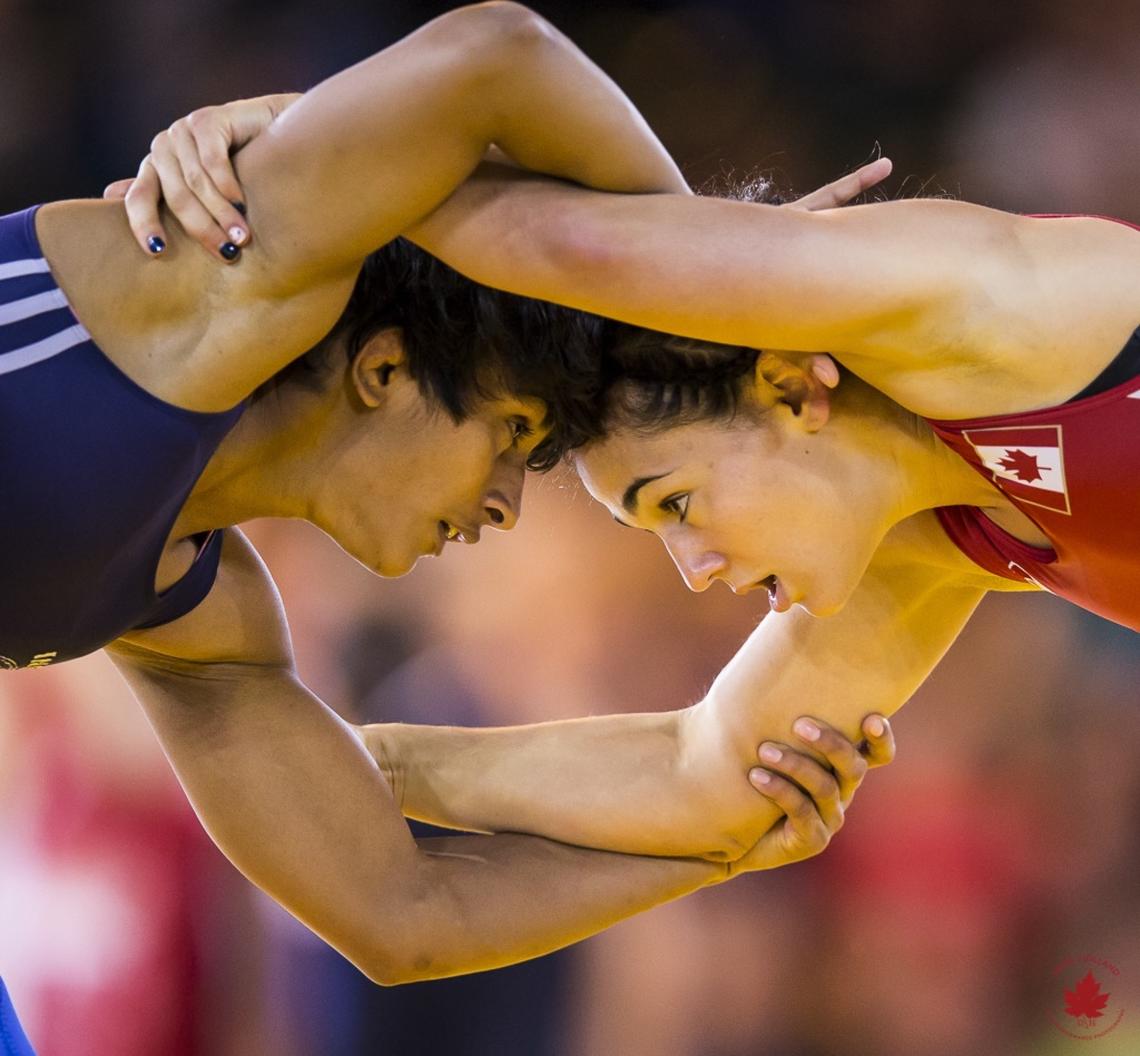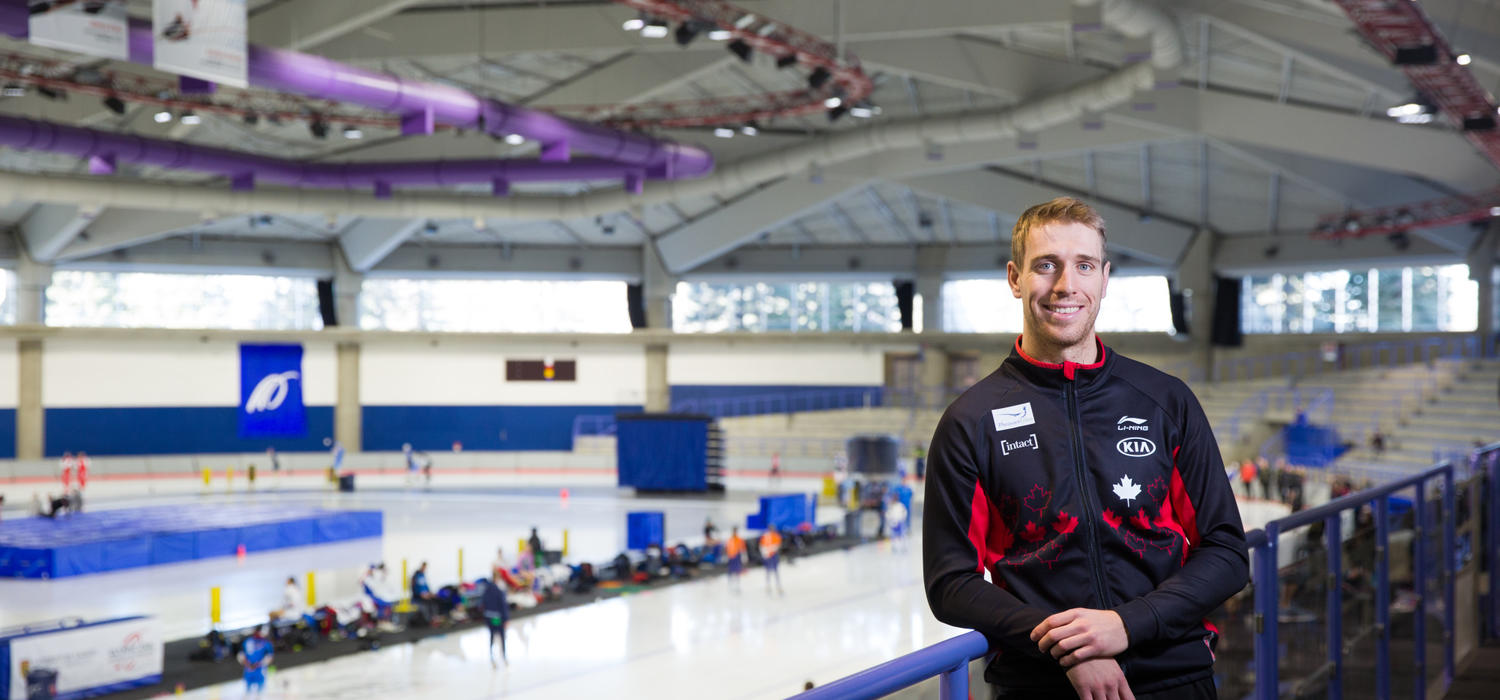
Jasmine Mian, right, is a former Olympic wrestler who participated in Game Plan.
Dave Holland
Feb. 20, 2018

Will Dutton, above, had no worries. Because — as an elite athlete — he was set. And if you asked him about his future, Dutton had a ready answer: "I'd be like, 'Oh, it's fine. I'll just be a really good speedskater, then life will be easy after that because people will just give me jobs.'"
Then? The 2014 Winter Games came and went, and, post-Sochi, Dutton began to have doubts. What would life after racing look like? "I felt super lost," says Dutton. "I had no real direction. I didn't know what the heck I was going to do." Unsettled, he retired from competition, took a crack at carpentry. That resolved nothing.
"I wasn't prepared after I quit skating — I found that out the hard way," says Dutton. "I'm not complaining. I'm sure everyone deals with that at some point in their lives. But when you're so focused on sport, it's hard to really look outside of that bubble."
This is where Game Plan comes in. The athlete wellness initiative — delivered by the Canadian Sport Institute Calgary and a dozen post-secondary institutions, including the University of Calgary — is there to guide national team members through the transition to life after competition. Eligible for the program are carded athletes, the 2,500 who receive funding assistance from Sport Canada. (Participation in the Olympics or the Paralympics is not a criterion for Game Plan.)
"They'll help you figure out what pathway is for you — to get you to whatever career you're interested in," Dutton says. "For me, that was really good."

Jasmine Mian, right, is a former Olympic wrestler who participated in Game Plan.
Dave Holland
Because Dutton was not alone. Following the 2010 Winter Games in Vancouver, Canadian athletes had been surveyed. One of their main concerns? Being unprepared for the future. Addressing that now is Game Plan, which includes a mental-health component and features one-on-one attention. There are workshops on skill building and resumes, public speaking and networking. There are opportunities for job shadowing and part-time work. Creative ways to continue education are explored.
"We explain to them that maybe it's not going to be the traditional way of going to school," says Cara Button, the Game Plan adviser based in Calgary. "Maybe you're going to take spring and summer classes. Maybe you're going to do a combination of online (courses) and in-classroom. Maybe you're going to do your whole undergrad degree by correspondence and it's going to take you six years. That's OK, as long as you have your head wrapped around that."
All of which sounds great. But for athletes in their primes, seeking career advice isn't often a priority. "It's a readiness thing," says Button. "They're all at different stages. They're all going to hear your message when they want to. Eventually, it sinks in."
One misconception is that high-performance athletes should formulate plans only after retirement. Not so. The sooner the better, according to Button. "Some of them feel like they're being disloyal or they're not giving it 100 per cent if they're thinking of anything else," she says. "Reality is, one day you'll be done. It's to your advantage to exercise your brain and develop some skills and network — be healthy, be a well-rounded individual."

Jasmine Mian is Game Plan's on-campus adviser at UCalgary.
Riley Brandt, University of Calgary
Case in point: Jasmine Mian. The wrestler completed her master's degree in psychology while preparing for the 2016 Olympics in Rio de Janeiro, where she finished 12th. Rather than serve as a distraction, schoolwork enhanced her athletic pursuits. "I always felt that I performed better in my sport when I had other things going on," says Mian, Game Plan's on-campus adviser at UCalgary. "In my experience, when you take care of all aspects of your life, it can help you actually achieve more in your sport." Dutton, too, stands as an example of the benefits of balance. Head on straight, anxiety alleviated, post-athletics course charted, he came out of retirement in 2015 — and landed on the podium in his first four World Cup races. "Right there is all the evidence we need," Button says of Dutton, who's enrolled in Queen's University's certificate for business and UCalgary's kinesiology program. "The Game Plan program, it's gaining momentum every day."